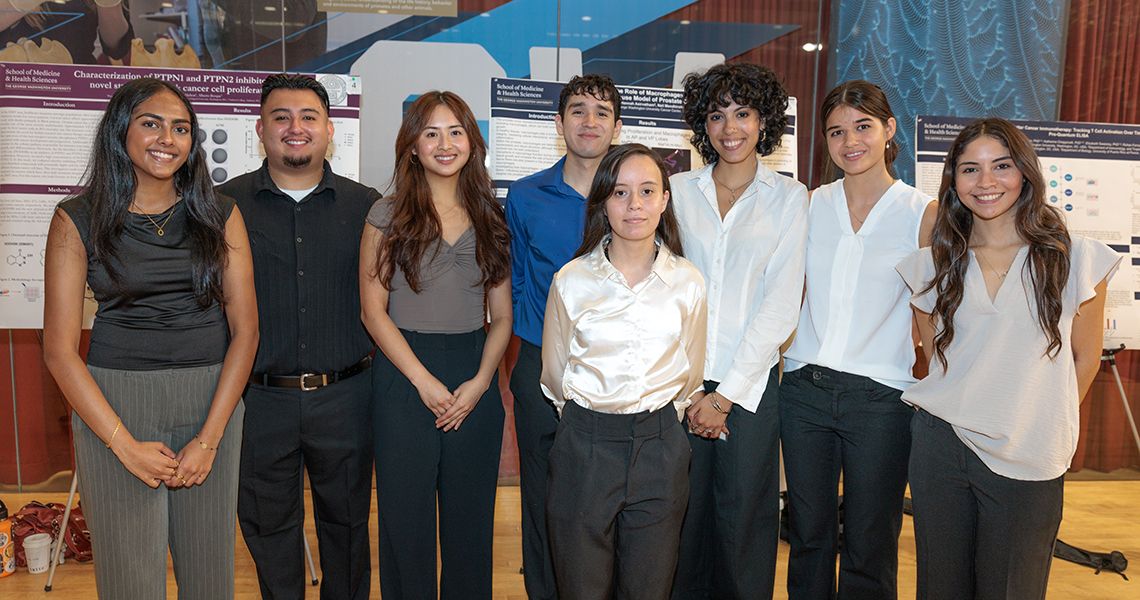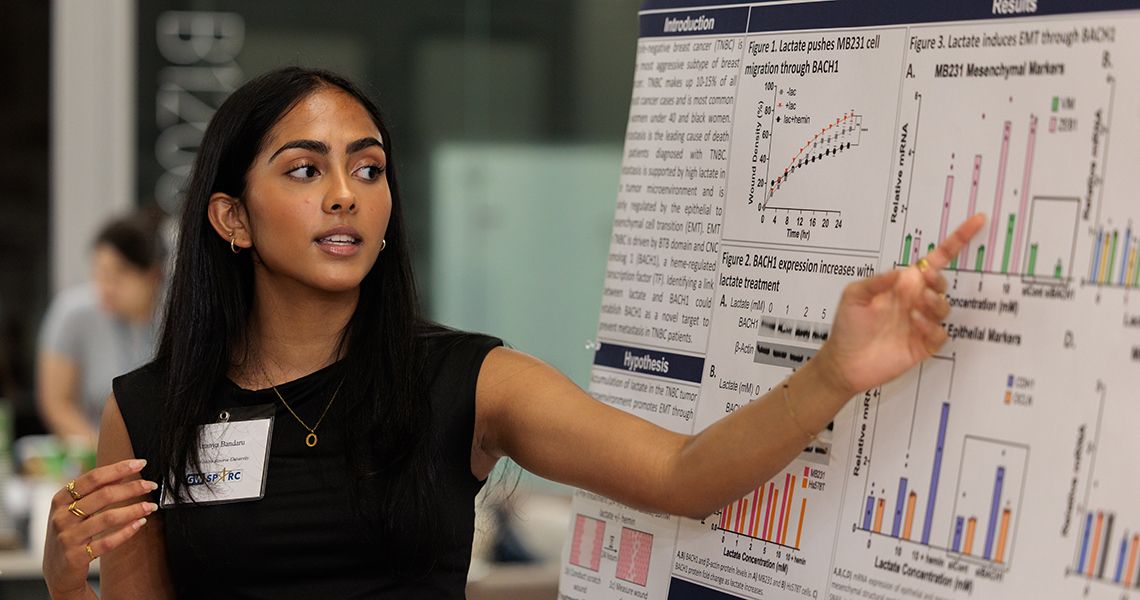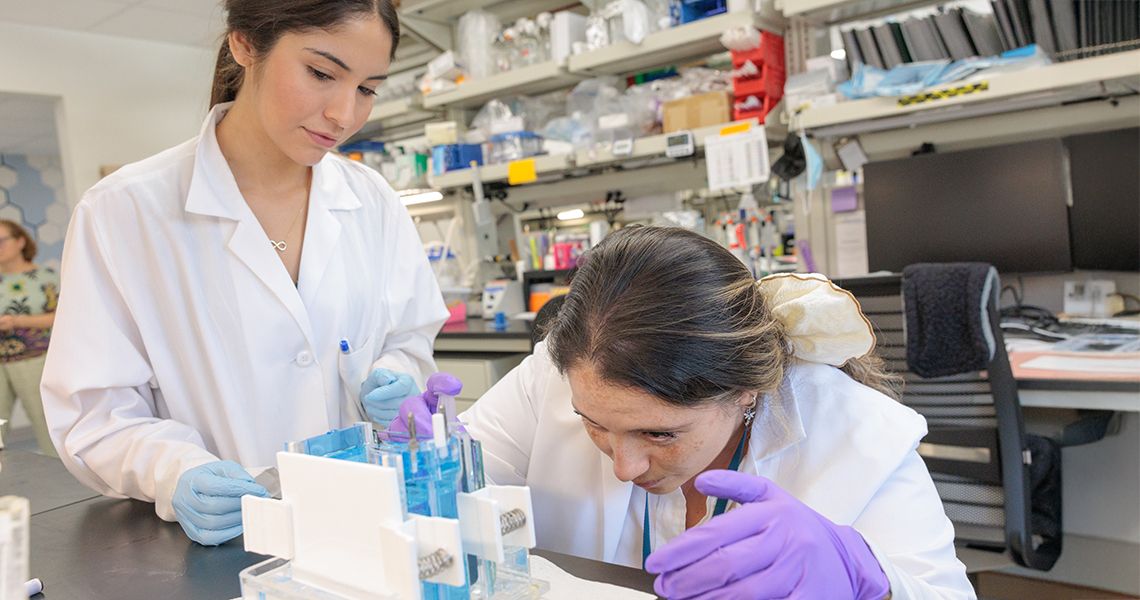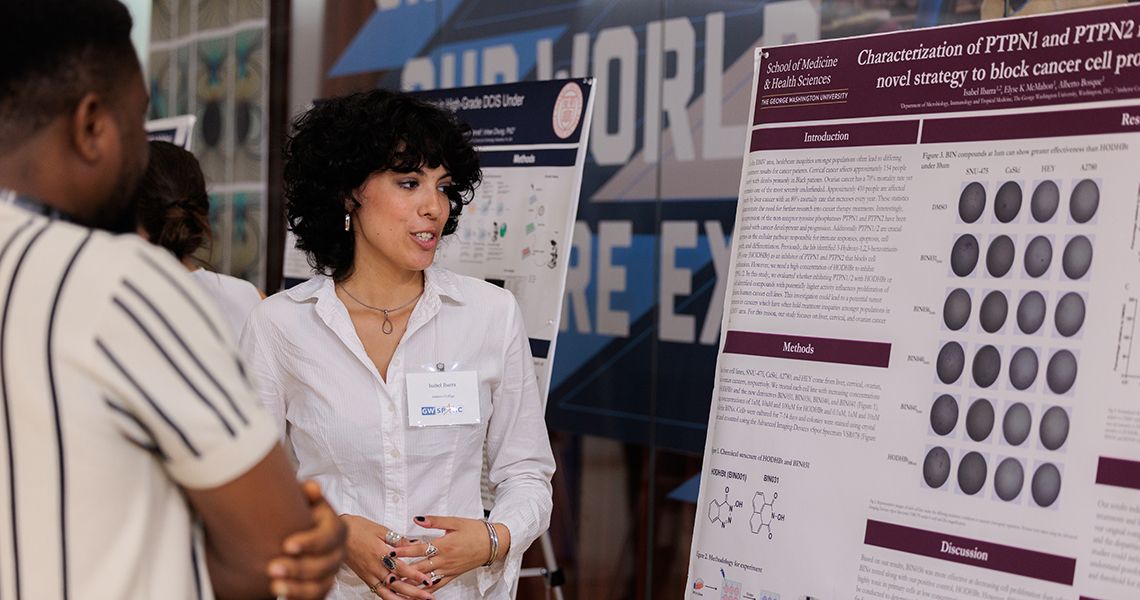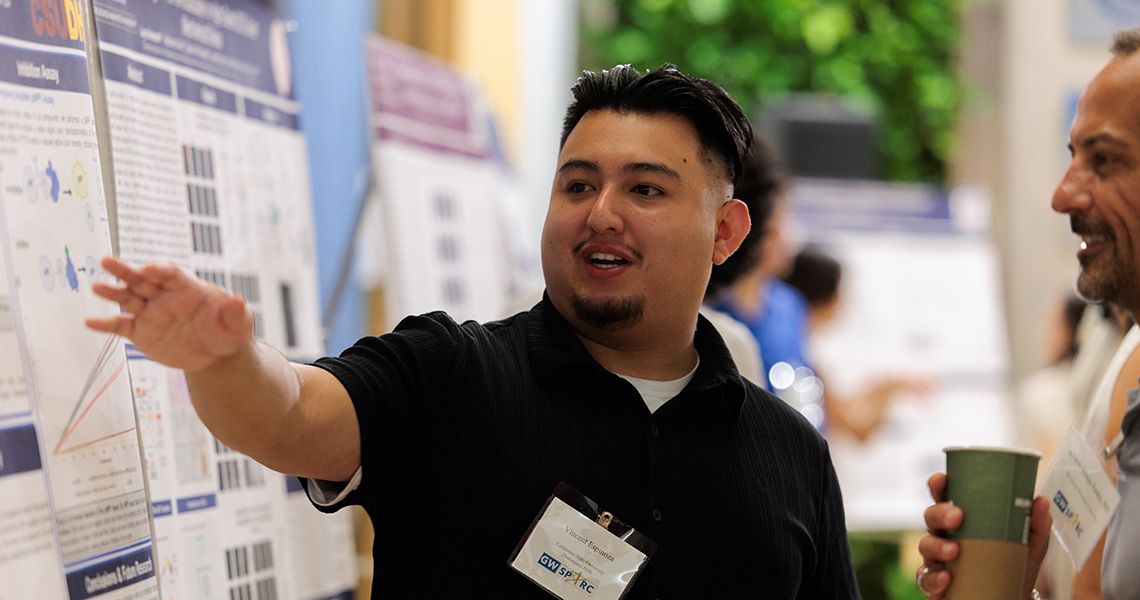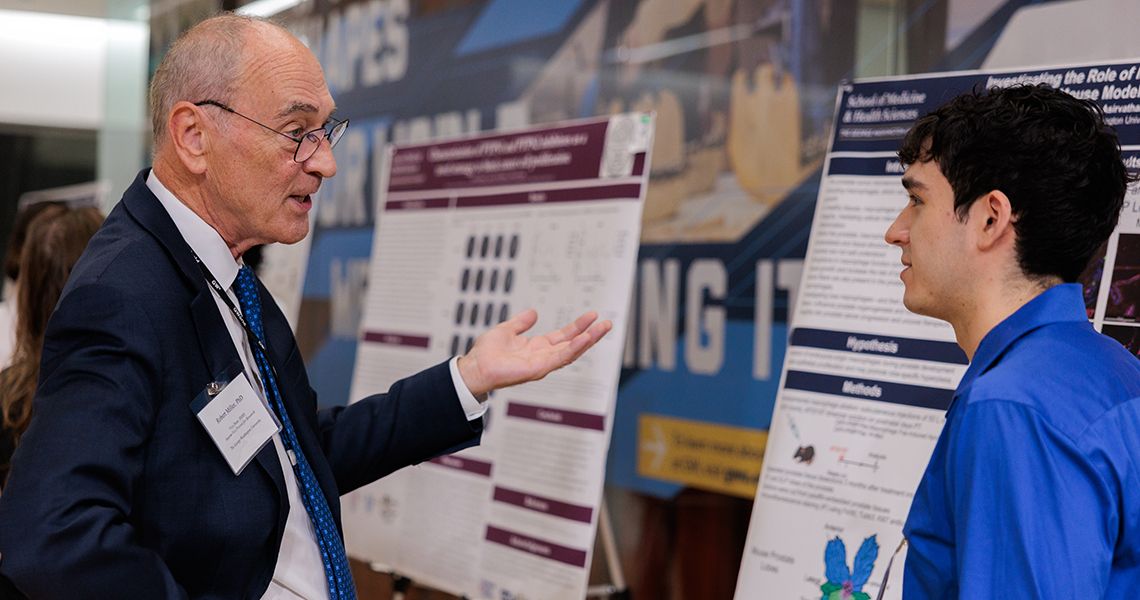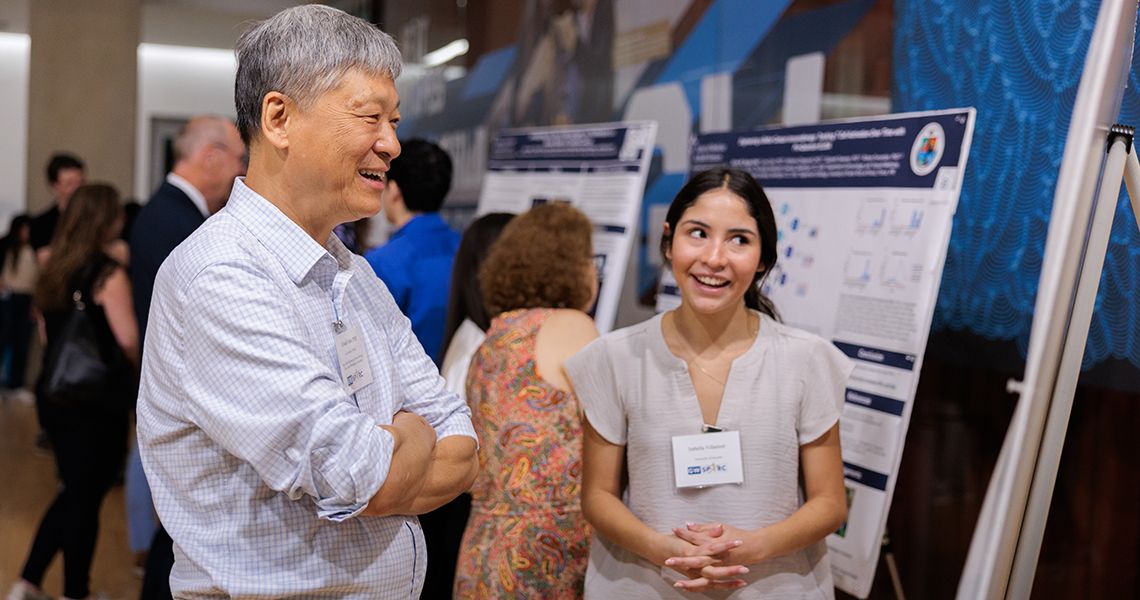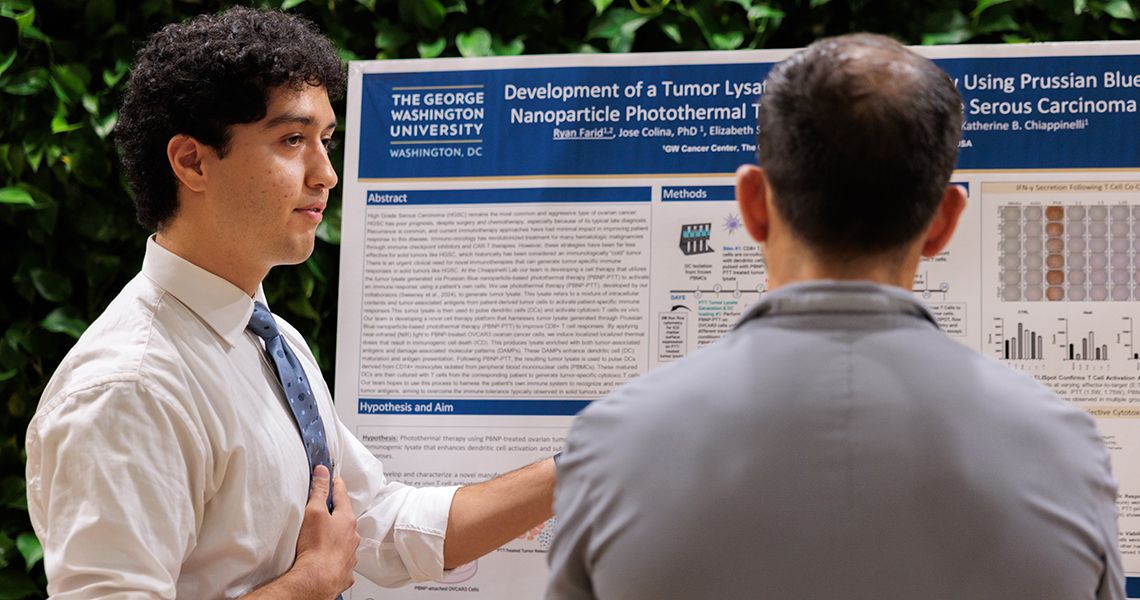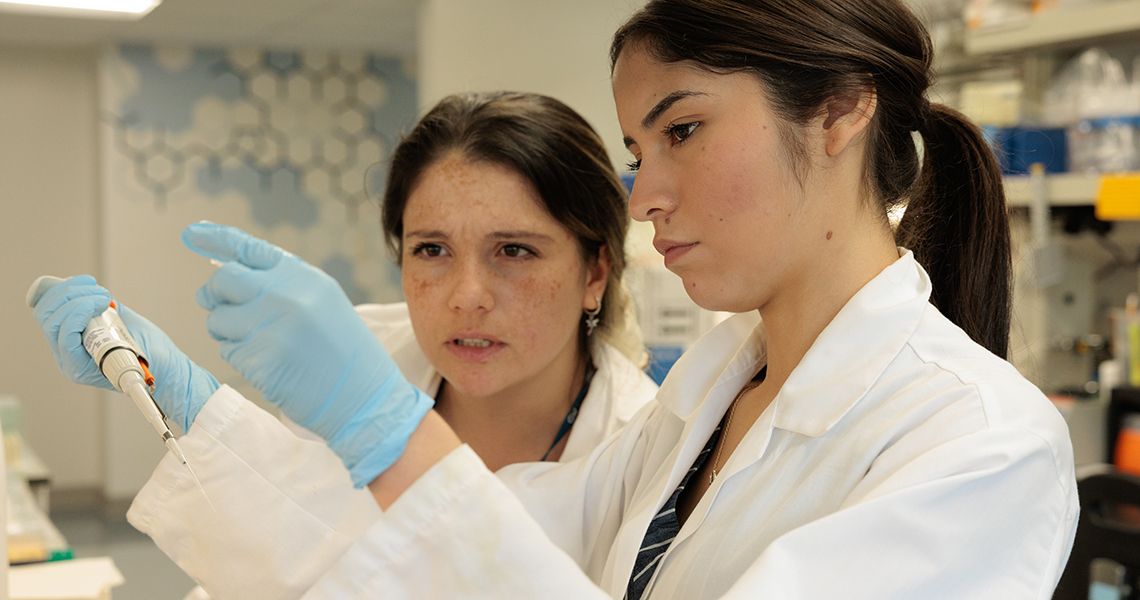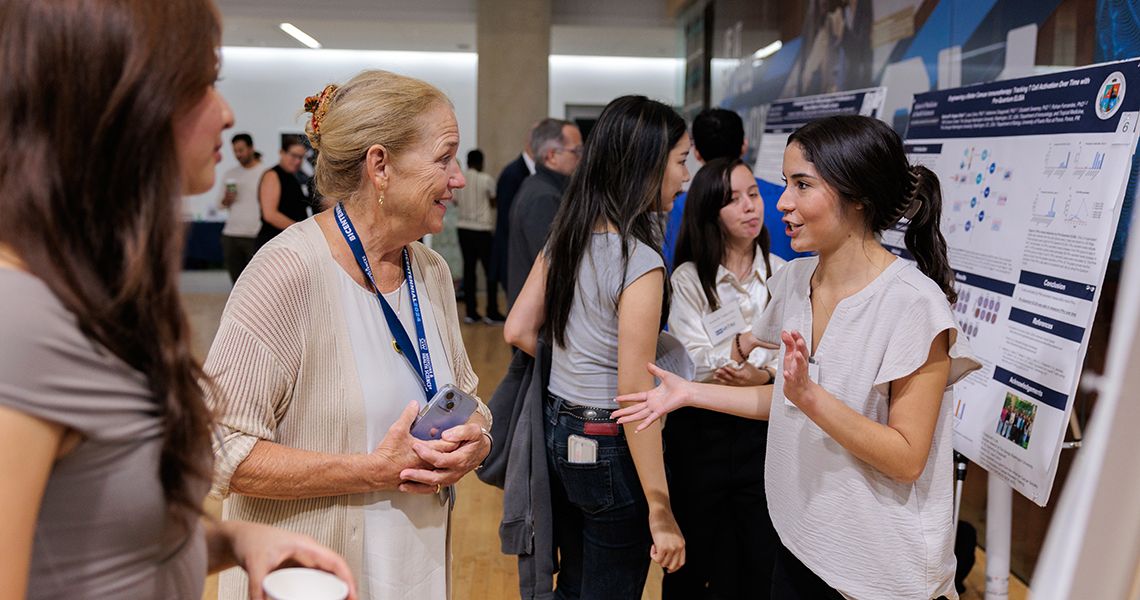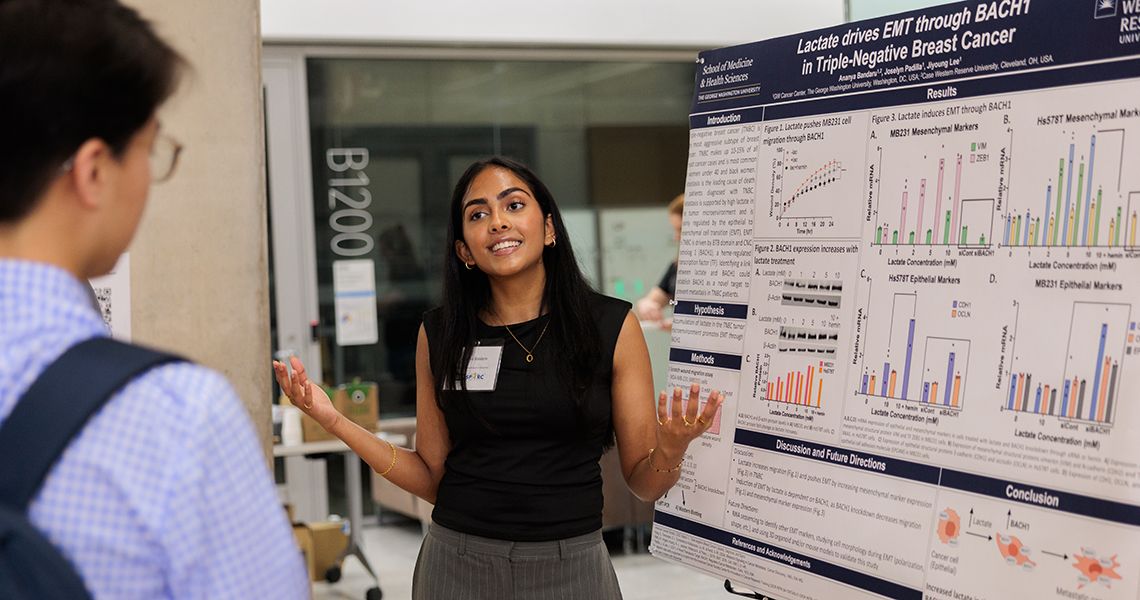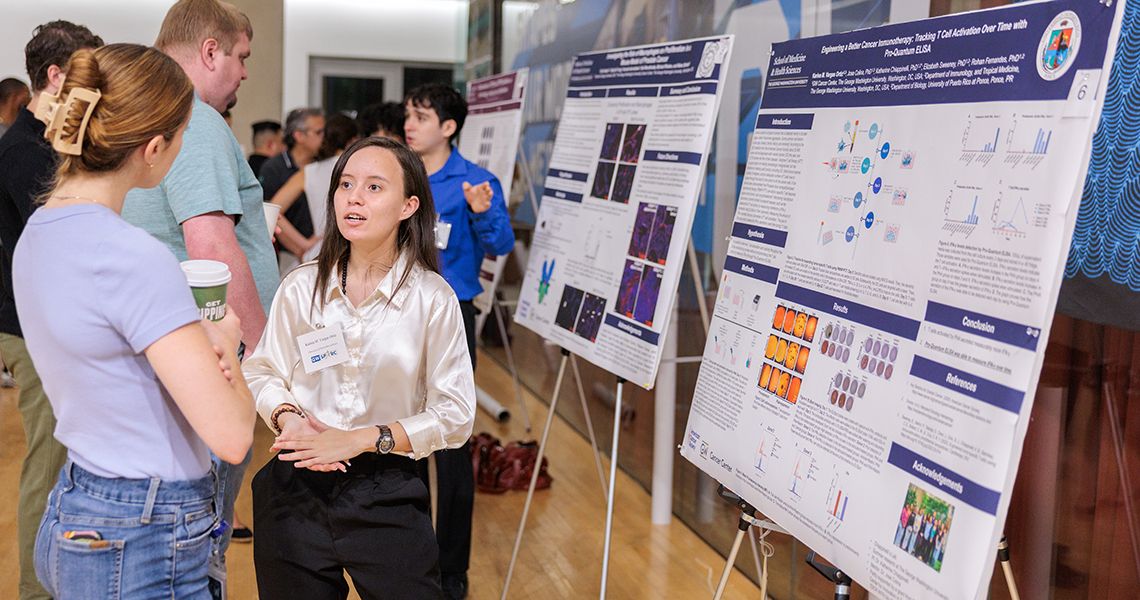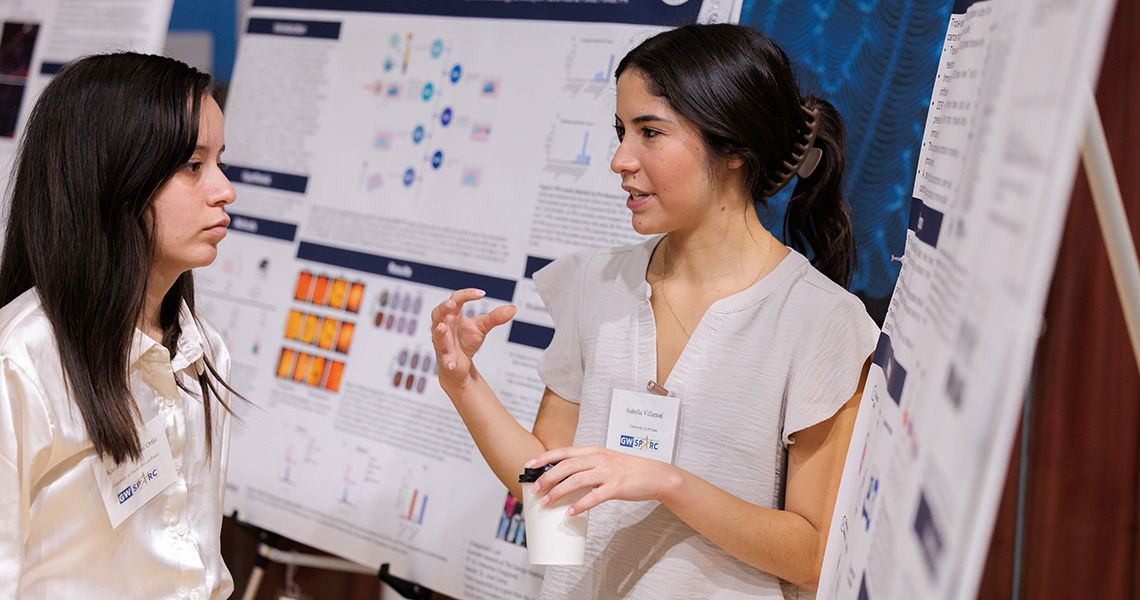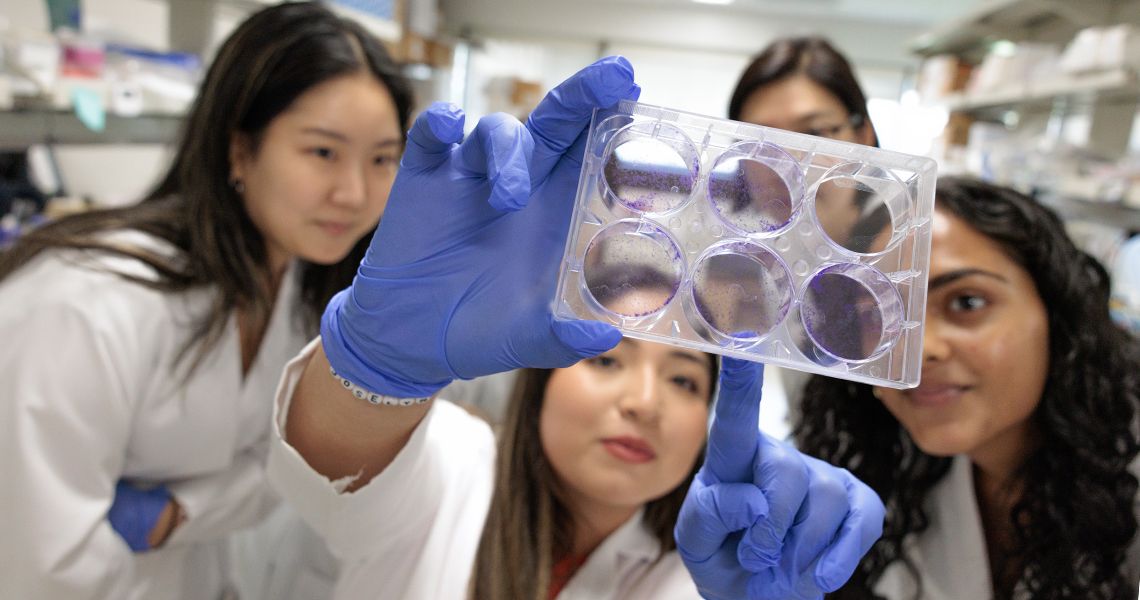The George Washington University (GW) Summer Program Advancing Research on Cancer (GW-SPARC) concluded its annual research immersion experience with a vibrant poster session on July 31. This event showcased the work of undergraduate students from institutions across the country — including Amherst, Bowdoin, California State University, Cornell, Case Western Reserve University, Pomona College, the University of Puerto Rico, and the University of Arizona — who spent the summer engaged in intensive cancer research in GW cancer research labs.
The GW-SPARC program, a cornerstone initiative at the GW School of Medicine and Health Sciences (SMHS) since 2018, provides participants with a taste of what a career in research entails. The program is supported in part by the American Cancer Society Center for Innovation in Cancer Research Training from the American Cancer Society, as well as through the GW Cancer Center.
“It’s a really vibrant program leading our scholars to go into doctoral programs, medical school, into biotechnology,” said Alison Hall, PhD, senior associate dean for research, who created the program and leads it with Edward Seto, PhD, King Fahd Professor of Cancer Biology and associate center director for basic sciences at GW Cancer Center.
“SPARC students,” she explained, “spend their summers immersed in hands-on laboratory experiences, focusing on cutting-edge cancer research techniques and addressing health disparities related to cancer. These students are the future of cancer research.”
The poster session drew GW faculty, regional science leaders, and fellow students, offering the undergraduate researchers a platform to present their findings and receive feedback.
This summer’s research projects covered a wide range of topics, including studies on breast, prostate, and ovarian cancer, as well as immunotherapy — all with the potential to advance understanding and treatment of cancer. In addition to their lab work, students participated in weekly workshops covering topics such as experimental design and applying to graduate and medical schools.
Among the students was Ananya Bandaru, from neighboring Fairfax, Virginia, and a rising junior studying both biochemistry and psychology at Case Western Reserve University. She spent her summer working under the mentorship of Jiyoung Lee, PhD, assistant professor of biochemistry and molecular medicine. Bandaru researched triple-negative breast cancer, an aggressive type of breast cancer with a 5-year survival rate of just 15%. Her research explored how lactate, a molecule often associated with muscle fatigue and found in high levels in the cancer microenvironment, affects the spread — or metastasis — of this deadly cancer.
Bandaru’s project, titled “Lactate Drives EMT (Epithelial-to-Mesenchymal Transition) in Triple-Negative Breast Cancer Cells,” examined how lactate interacts with the BAP1 gene to promote EMT and metastasis in the triple-negative breast cancer microenvironment.
“This has been a really great experience for me,” said Bandaru, who entered the program with some prior lab experience from high school and her home campus. “I’ve never had the opportunity to lead a research project or serve as the main worker on it, so it’s been great to see this from the beginning to the end and be able to see my work actually have some sort of result.”
GW-SPARC emphasized careers in cancer research and enhanced personal and professional growth, encouraging students to build resilience, develop critical thinking skills, and embrace the challenges inherent to scientific research. These broader lessons were a central theme throughout the program and were underscored by remarks by Seto.
“You have tackled challenging projects, asked thoughtful questions, and discovered solutions, and impressed everyone,” he told the students.
He added that the summer wasn’t simply about learning basic research and technical skills. “In cancer research, persistence through setbacks is essential, and you've demonstrated that beautifully. As you return your regular routines, remember the approach you developed here — persistence and curiosity — these qualities will serve you well wherever you go.”
